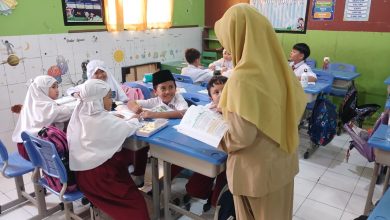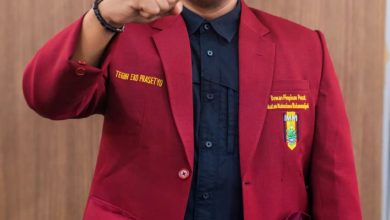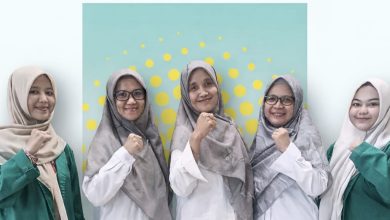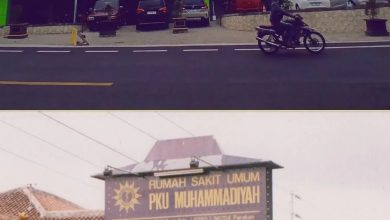Islamic Dawah In Australia: Navigating Faith, Outreach, And Social Cohesion
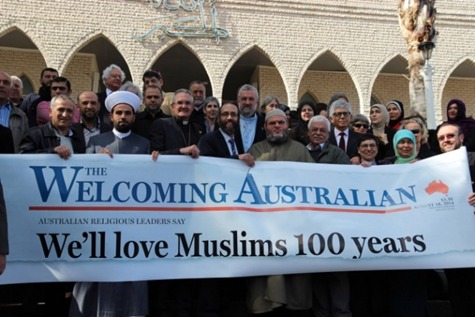
Islamic Dawah In Australia: Navigating Faith, Outreach, And Social Cohesion
Oleh : Tegar S. Ahimza (Special Correspondent, Part of Library and Information Council, The Regional Board of Muhammadiyah Central Java, History Observer and Professional Copywriter)
PWMJATENG.COM – Australia’s multicultural society has long been a fertile ground for religious and cultural exchange. In recent years, Islamic dawah—the act of inviting others to understand Islam—has evolved through various initiatives aimed at fostering interfaith dialogue, community engagement, and education. While many efforts have been lauded for promoting understanding and harmony, some have sparked controversy, highlighting the complexities of religious outreach in a diverse nation.
Prominent Figures Leading Dawah Efforts
Sheikh Shady Alsuleiman, born in Sydney to a Palestinian family, is a central figure in Australia’s Islamic outreach. As President of the Australian National Imams Council (ANIC) and founder of the United Muslims of Australia (UMA), he has been instrumental in organizing youth programs, community lectures, and interfaith events. His initiatives focus on educating both Muslims and non-Muslims about Islamic teachings, emphasizing values of compassion, justice, and coexistence.
In academia, Professor Mohamad Abdalla stands out as a leading voice in promoting interreligious understanding. As Director of the Centre for Islamic Thought and Education at the University of South Australia, he has played a pivotal role in establishing Islamic Studies as an academic discipline in the country. His work includes co-editing books such as Islam and the Australian News Media and Leadership in Islam: Processes and Solutions in Australian Organizations, contributing to a nuanced understanding of Islam in the Australian context. (icis.riphah.edu.pk)
Community Initiatives Promoting Interfaith Dialogue
Organizations like the Australian Intercultural Society (AIS) have been at the forefront of fostering interfaith and intercultural dialogue. Established in 2000, AIS has organized mosque open days, Ramadan Iftar dinners, and educational programs aimed at bridging gaps between Muslims and the wider Australian society. Their efforts have been instrumental in promoting mutual respect and understanding among diverse communities. (intercultural.org.au)
Read more, The Mamluks: The Last Bastion of The Islamic World from The Mongol Invasion
The National Mosque Open Day, first held in Australia in 2014, is another significant initiative. Organized by the Lebanese Muslim Association, the event sees mosques across the country opening their doors to the public, offering tours and discussions to demystify Islamic practices and beliefs. These open days have been praised for enhancing community relations and dispelling misconceptions about Islam. (https://en.wikipedia.org/wiki/National_Mosque_Open_Day)
Controversies and Challenges
Despite these positive strides, not all dawah activities have been without controversy. In Sydney, Islamic preacher Wissam Haddad, also known as Abu Ousayd, has come under scrutiny for sermons containing anti-Semitic remarks. The Executive Council of Australian Jewry (ECAJ) has initiated legal action against Haddad and the Al Madina Dawah Centre, alleging that his speeches violated the Racial Discrimination Act by vilifying Jews. (news.com.au)
Haddad has defended his sermons, claiming they are based on Islamic scripture. However, his comments have been widely condemned, and the case has sparked a broader discussion about the limits of free speech and the responsibilities of religious leaders in a multicultural society. (theaustralian.com.au)
Government and Community Responses
The Australian government has expressed concern over the rise of hate speech and its impact on social cohesion. Prime Minister Anthony Albanese condemned a recent firebombing of a synagogue in Melbourne as a terrorist act, emphasizing the need for unity and vigilance against extremism. (dailytelegraph.com.au)
Community leaders have also called for increased education and dialogue to combat prejudice and promote understanding. Many argue that while legal measures are necessary to address hate speech, long-term solutions lie in fostering mutual respect and open communication among Australia’s diverse populations.
Islamic dawah in Australia reflects the broader challenges and opportunities of religious outreach in a multicultural society. While many initiatives have successfully promoted understanding and harmony, incidents of hate speech underscore the need for ongoing vigilance and dialogue. As Australia continues to navigate its diverse cultural landscape, the role of inclusive and respectful religious outreach remains more important than ever.
Ass Editor : Ahmad; Editor : M Taufiq Ulinuha

